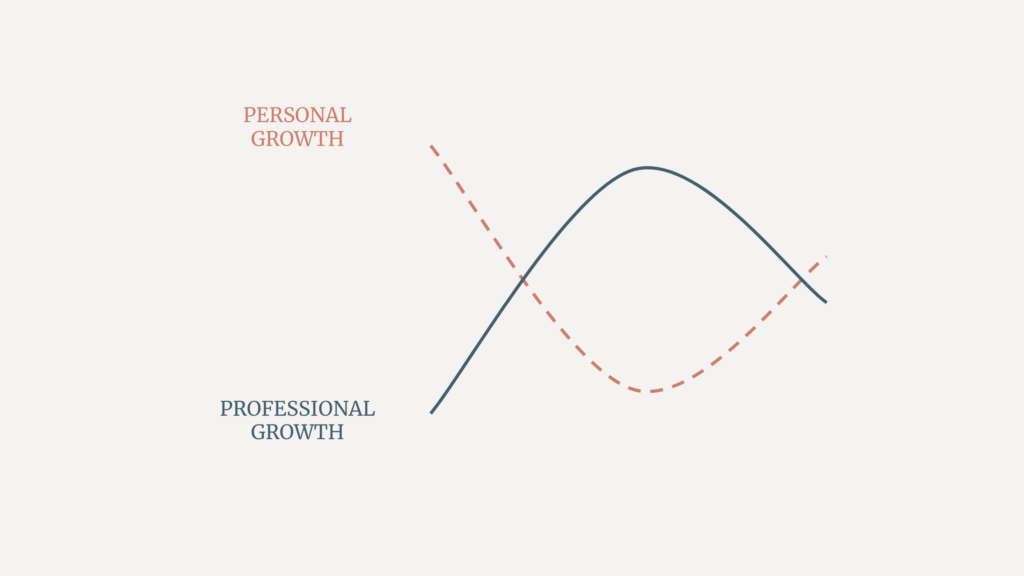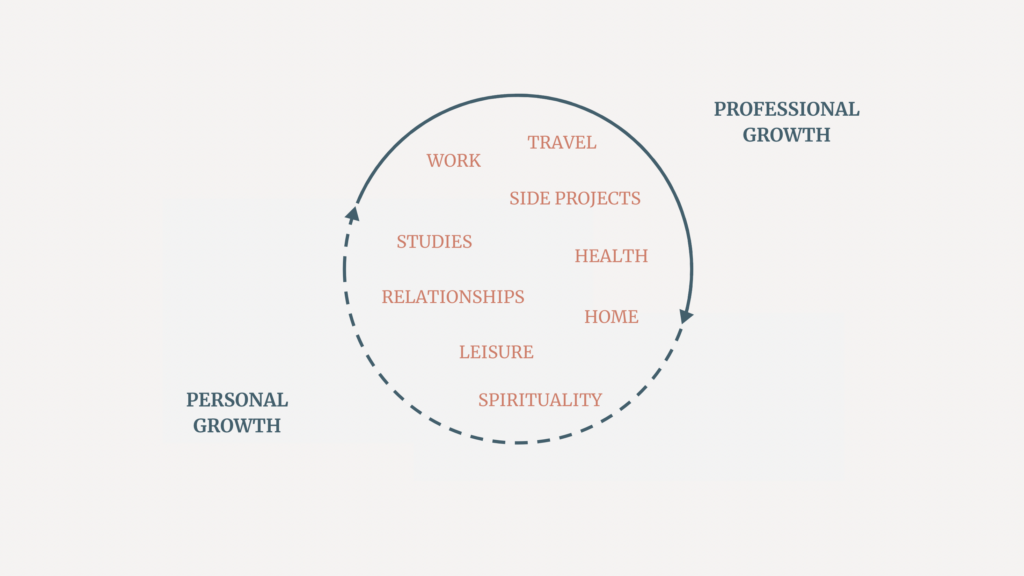“I’ve decided to take it easy at work this year and focus on myself.” I’ve recently been hearing variations of this sentence over and over again. Magazines are publishing stories about “the end of ambition” and how more people are taking extended sabbaticals.
It seems like we need to make a constant choice between our personal and professional and personal growth. If you want to achieve your entrepreneurial dreams or build a successful career, then your personal development will take a backseat. Or, if you want to get to know yourself better and expand your consciousness, you should disconnect from work.
But is it truly a zero-sum game?
The finite mental energy fallacy
The American social psychologist Roy Baumeister and his colleagues proposed a model that compared self-control to a muscle that can become fatigued. The researchers hypothesized that using your willpower “muscle” would leave you exhausted and unable to muster the same level of effort in subsequent tasks—a phenomenon called ego depletion.
According to this view, the brain is like a battery with a finite amount of mental energy per day. We believe that every challenge we navigate at work will drain this battery. And as we pour our energy into work, there’s an underlying worry that we’re using up this precious, limited energy that could have been allocated to personal pursuits and self-improvement.
This perspective has significantly influenced the discourse around work-life balance. Just have a quick look online, and you’ll find a deluge of articles and courses aimed at helping people strike the right balance between their personal and professional lives.
The premise of these online resources is often the same: since our mental energy is limited, we must find ways to ration it wisely. Strategies revolve around optimizing work productivity to ensure enough energy is left for personal pursuits. The narrative is clear: personal sacrifice is necessary to achieve professional success, and vice versa.

However, researchers are starting to challenge this idea. Recent studies suggest that after an initial burst of effort, people’s motivation shifts from control to reward. This indicates that we don’t necessarily experience a depletion of mental energy, but a change in focus.
Let’s say you have a bucket of water and use it to water the plants in a garden. The traditional view of ego depletion suggests that every time you use mental energy, it’s like drawing from the bucket to water the plants. Over time, the bucket will eventually be empty.
The newest research offers a different perspective. Instead of a bucket, imagine that you have a hose. After using some water for watering the plants, you may use the hose for something more immediately gratifying, like filling a kiddie pool. The water source hasn’t run out; it’s just being channeled in a different direction based on changing priorities. It’s not about a loss of mental energy, but a decision—which can be conscious or subconscious— to redirect your efforts.
So, what if our mental energy isn’t as limited as we’ve been told? Then, the strategies we’ve been employing to balance our professional and personal lives might need a complete overhaul. It opens the door to a paradigm shift where personal and professional growth aren’t at odds, but can actually complement and fuel each other.
Nurturing your mental energy
Instead of seeing your mental energy as a limited resource you need to ration, breaking free from this scarcity mindset can help you create a virtuous circle where your day jobs and side projects both fuel your productivity and creativity, where your personal relationships provide inspiration to solve professional challenges, and where learning and growth permeate all area of your life.

Learning to use a new tool at work could inspire you to start a new digital project when you get home. Researching your local archives to create historically accurate characters in a novel you are writing could provide insights into building a more engaging community at work. A conversation with a colleague can offer the exact perspective you needed to approach a thorny conversation with a friend.
The key is not to treat what you learn in your professional life as separate from what you learn in your personal life. It’s to see them as porous, equally important parts of your life, full of opportunities to gain energy from.
Here are three simple ways you can apply to start breaking free from the ego depletion paradigm and nurture your mental energy:
1. To manage your energy, manage your focus. Challenge the belief that you’re “out” of energy after a day of hard work. Instead, you can expand your energy by directing your focus toward activities that feed your curiosity and creativity.
2. Reflect on how your energy flows between various areas of your life. We often struggle to manage our energy levels when we feel stretched between unrelated commitments. Take some time to look at all your personal and professional projects, and ask yourself: Where can I create synergies? For instance, is there a topic you’re personally curious about that could benefit your colleagues? Or, is there something you have to learn for work that could be useful for a personal project?
3. Surround yourself with energy expanders. Connect with people who also believe in nurturing and expanding their mental energy by seeking growth in both professional and personal parts of their lives. Not only will they inspire you to not place false limitations on yourself, but they can provide advice to create new synergies across all your areas of potential growth.
Of course, we can be physically and psychologically exhausted for many reasons—lack of sleep, emotional upheavals, or even nutritional imbalances—but it doesn’t mean our mental energy is inherently finite.
By challenging this belief, creating growth loops across different areas of your life, and surrounding yourself with like-minded people, you can significantly expand your mental energy to achieve more without sacrificing your mental health.
